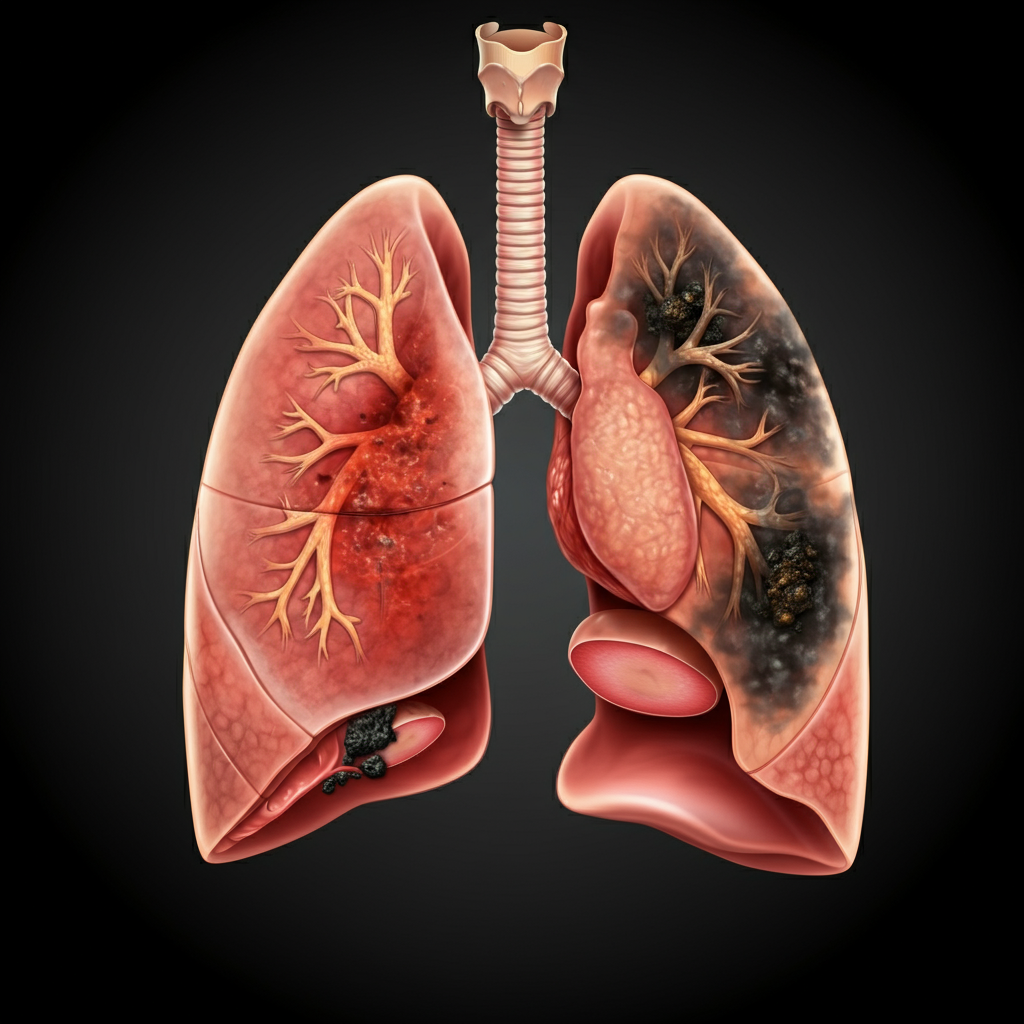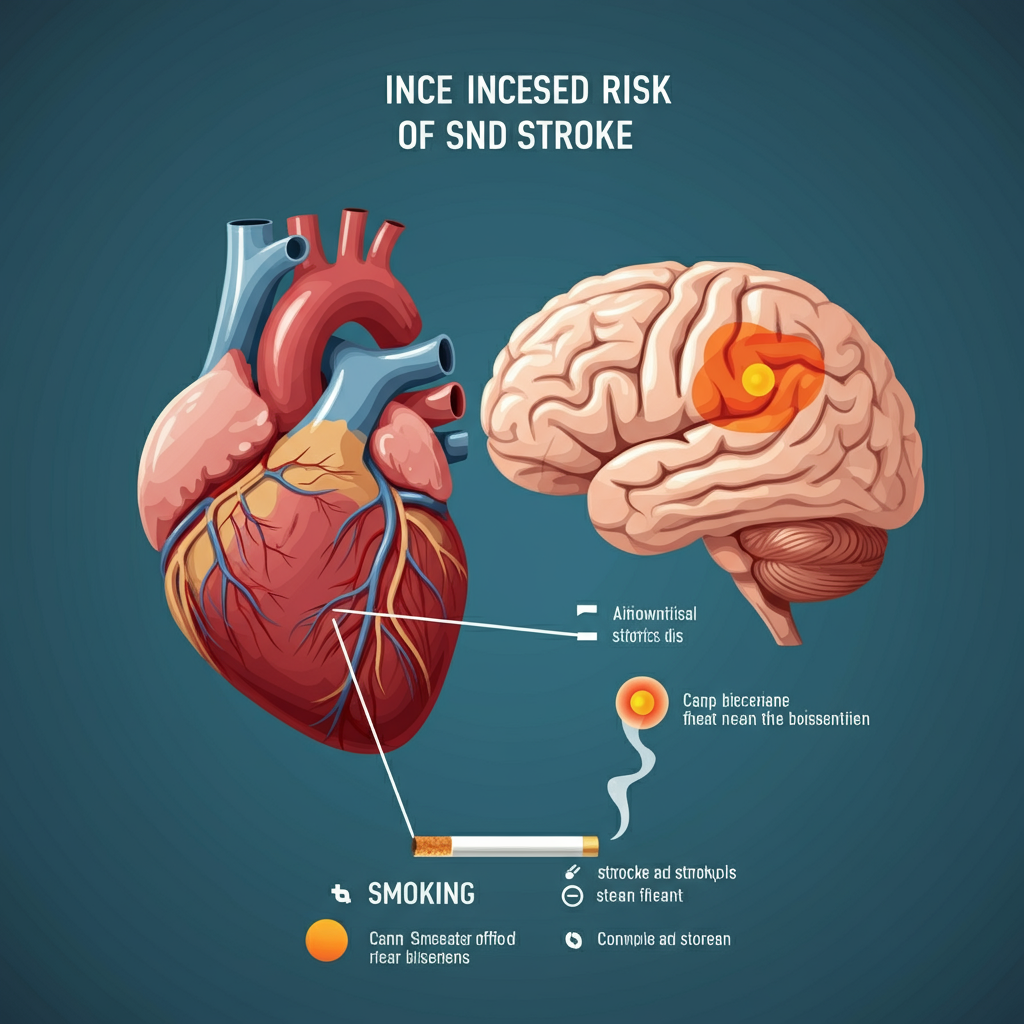The Hidden Dangers of Smoking: 10 Side Effects You Should Know
Smoking may seem like a personal choice, but its consequences are far-reaching, affecting not just the smoker but those around them as well. While the major risks of smoking, like lung disease and cancer, are well-known, many hidden dangers remain that smokers might not fully understand until it’s too late. Additionally, alternatives to smoking, such as snus, are emerging as harm-reduction options. Here’s a comprehensive look at the dangers of smoking and how snus may provide a less harmful alternative.

1. Lung Damage and Respiratory Issues
Smoking is the leading cause of lung cancer, contributing to about 85% of all cases. Beyond cancer, smokers face chronic obstructive pulmonary disease (COPD), emphysema, and bronchitis. Over time, inhaling the harmful chemicals in cigarette smoke irreversibly damages lung tissue, making breathing difficult. Even secondhand smoke can cause respiratory problems in nonsmokers, including children.
2. Heart Disease and Stroke
Smokers are twice as likely to suffer from heart attacks and strokes. Cigarettes damage blood vessels and increase the risk of atherosclerosis, a condition where arteries harden due to plaque buildup. This restricts blood flow, severely impacting heart health. Compared to smoking, alternatives like snus eliminate exposure to harmful combustion byproducts that directly damage the cardiovascular system.
3. Weakened Immune System
Smoking compromises your immune system, reducing your body’s ability to fight infections. Smokers often find themselves dealing with prolonged colds, flu, and even pneumonia. Over the long term, this weakened immune response may make recovery from illnesses more difficult.
4. Damaged Skin and Premature Aging
The nicotine in cigarettes constricts blood vessels, depriving your skin of essential nutrients and oxygen. This leads to dull, sagging skin and premature wrinkles. “Smoker’s lines” around the mouth are also a common sign of tobacco use. Smoking’s impact on skin health is noticeable much earlier than many other health effects.
5. Oral Health Issues
Smoking leads to bad breath, stained teeth, gum disease, and an increased risk of oral cancers. The yellowing of teeth and chronic oral health issues are telltale signs of the damage smoking can cause. Interestingly, alternatives like snus offer smokers a way to satisfy their cravings without exposing their gums to the more harmful combustion products of cigarettes.
6. Infertility and Reproductive Problems
Tobacco use impacts hormonal balance. Women may face difficulties conceiving, while men may experience reduced sperm count and quality. Smoking while pregnant increases the risk of complications, including miscarriage, preterm birth, and low birth weight.
7. Bone Health Deterioration
Smoking weakens bones, significantly increasing the risk of osteoporosis and fractures. Women who smoke are particularly vulnerable after menopause, as smoking accelerates bone density loss.
8. Mental Health Impact
While many turn to smoking as a stress reliever, studies suggest that nicotine addiction worsens anxiety and depression over time. The habitual nature of smoking locks individuals into a cycle of temporary relief and ongoing dependence.
9. Reduced Sense of Taste and Smell
Long-term smoking damages nerve endings in the nose and mouth, dulling your senses of taste and smell. This loss intensifies over time, diminishing daily pleasures like eating flavorful food or appreciating subtle aromas.
10. Secondhand Smoke Risks
Smoking doesn’t just harm the smoker; it also impacts everyone nearby. Secondhand smoke increases the risk of lung cancer, respiratory diseases, and heart ailments in nonsmokers. Children in smoke-filled environments are more likely to develop asthma and lung infections.

How Snus Offers a Smoke-Free Alternative
While the dangers of smoking cannot be overstated, some people find quitting cigarettes to be a steep challenge. This is where products like snus, as highlighted by HNpillow, come into the picture. Unlike cigarettes, snus provides a smoke-free option by delivering nicotine without the need for inhaling harmful combustion products.
Snus works by placing small pouches of nicotine and tobacco between the upper lip and gum, making it a discreet and convenient alternative. Notably, snus does not involve the inhalation of smoke, thereby eliminating the exposure to toxic chemicals linked to lung cancer and respiratory diseases. Additionally, snus is associated with reduced health risks, including lower rates of heart disease, compared to smoking.
Why Consider Snus?
- Smoke-Free Usage
Snus provides nicotine without lighting up, which avoids the harmful byproducts of combustion. - Reduced Health Risks
Experts note that snus carries significantly reduced risks of smoking-related illnesses like lung cancer, heart disease, and COPD. - Variety of Flavors
HNpillow offers a range of innovative snus flavors, catering to individual preferences. - Convenience
Snus can be used anywhere, even in situations where smoking is impractical or prohibited. - Satisfies Cravings
For smokers who want to quit or reduce cigarette usage, snus allows controlled nicotine delivery while decreasing reliance on cigarettes.
The Shift to Harm Reduction
Tobacco harm reduction strategies, including snus, aim to lower smoking-related health risks. While quitting smoking entirely is the best option, not everyone can do so immediately. Products like snus can act as a stepping stone toward quitting altogether, offering a less harmful way to manage nicotine dependence.




